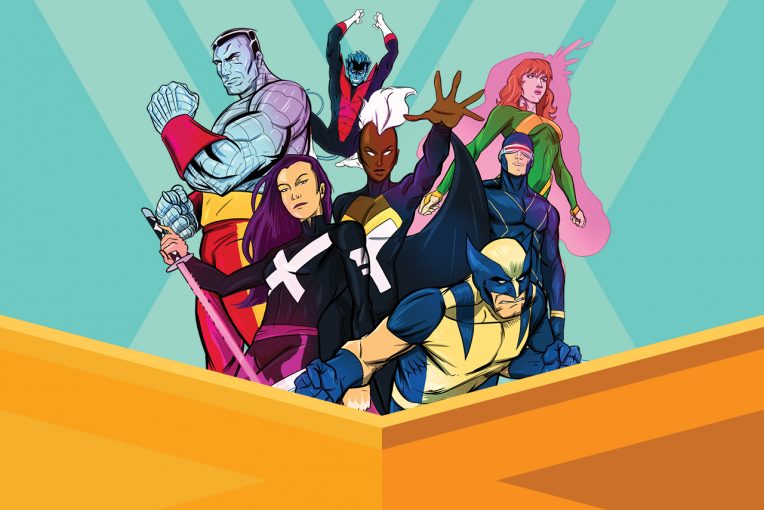Acclaimed X-Men comic book writer Chris Claremont spoke to over 100 members of the Redbird community about the importance of telling diverse stories on April 15 during a virtual ReggieCon event.
ReggieCon is a series of panel discussions about the depictions of race, gender, and ethnicity in comics, graphics novels, movies, and other popular media. This panel was the fifth of six planned events this school year.
Claremont is primarily known for his work writing the X-Men, a team of super-powered mutants. In the comics, the X-Men combat widespread bigotry towards mutants by using their powers to protect the same people who fear and hate them. Throughout their history, writers have used the X-Men to commentate on civil rights movements and the sociopolitical responses to those movements.
“This is a series about inclusion,” Claremont said. “The need for inclusion, the positivity of inclusion, and the sheer stark terror inclusion awakens in the half the country that aren’t ready for it.”
His first run as the writer of The Uncanny X-Men from 1975-1991 saw the creation of dozens of beloved characters and the publication of some of the most highly acclaimed comic stories of all time. In 1991, Claremont collaborated with artist Jim Lee to launch a new X-Men title, simply titled X-Men. The first issue of X-Men is the best-selling comic book of all time, with over 8 million copies sold.
Joining Claremont at ReggieCon was trauma specialist Dr. Leandra Parris. The panel, titled “Mutant and Proud! Diversity in the World of X-Men,” also included Dr. Scott Jordan, chair of the Department of Psychology at Illinois State University; Victor Dandridge, founder of Vantage InHouse Productions; Dr. Theresa Rojas, professor of English at Modesto Junior College and director of the Latinx Comic Arts Festival; Dr. Eric Wesselmann, associate professor of psychology at Illinois State; and cultural anthropologist Dr. Stanford Carpenter.
The panel discussion focused on the 1982 standalone graphic novel God Loves, Man Kills written by Claremont with art by Brent Anderson. Claremont said that God Loves, Man Kills was created to be the definitive X-Men story.
“If you were to only have one X-Men story in your entire life, that’s it,” Claremont said. “It exemplifies and encompasses who these people are, why they are, what the conflict is between them and the rest of humanity. It has nothing to do with superpowers. It has everything to do with difference.”
The primary conflict is the ideological battle between X-Men leader Charles Xavier and their arch foe, Magneto. Xavier dreams of a future where mutants and humans live in harmony. Magneto sees regular humans as a threat and wants to create a world where mutants are its overt leaders. In God Loves, Man Kills, Xavier is kidnapped by the Reverend William Stryker, a popular televangelist who uses his platform to drive anti-mutant sentiment. The X-Men are forced to turn to Magneto to help rescue their mentor. Throughout the story, Magneto attempts to recruit Xavier and the rest of the X-Men to his cause but is turned down in its final pages.
“You come to an end where, thank heavens, the right thing was done, the day was saved,” Claremont said. “Yet the conflict—Magneto versus Charlie, their visions of the world, their visions of how the world needs to be dealt with—that hasn’t changed. Magneto is the utter pessimist. And Charlie, because of what he’s endured, because of what his students are expressing to him, has to hold on to hope.”
In the wake of the ongoing controversy about the use of force by police, the climax of the graphic novel was thoroughly discussed. After saving Xavier, the X-Men nonviolently confront Stryker during one of his sermons. Stryker tries to kill one of the X-Men, but he is shot by a police officer before he can do so. Claremont acknowledged that the scene holds a different weight in 2021 than it did in 1982, but stressed his decision was made to end the story with a hopeful message.
“I suppose the whole point in something like God Loves is the differentiation between those who use weapons as a means of terror and a person who uses the weapon responsibly in the upholding of the law, defense of society,” Claremont said. “For me, at that time, it was an expression of hope. That the forces that society chose to protect itself in a grand scheme would do so. Not just a neighborhood, not just a block, not just a color, not just a race, everybody. Without exception or differentiation.”
The next ReggieCon features a discussion about the work of acclaimed animator Hayao Miyazaki, scheduled for May 6.


